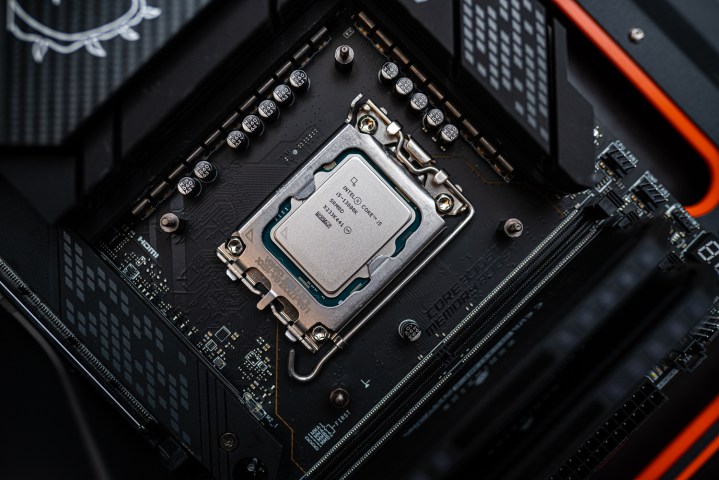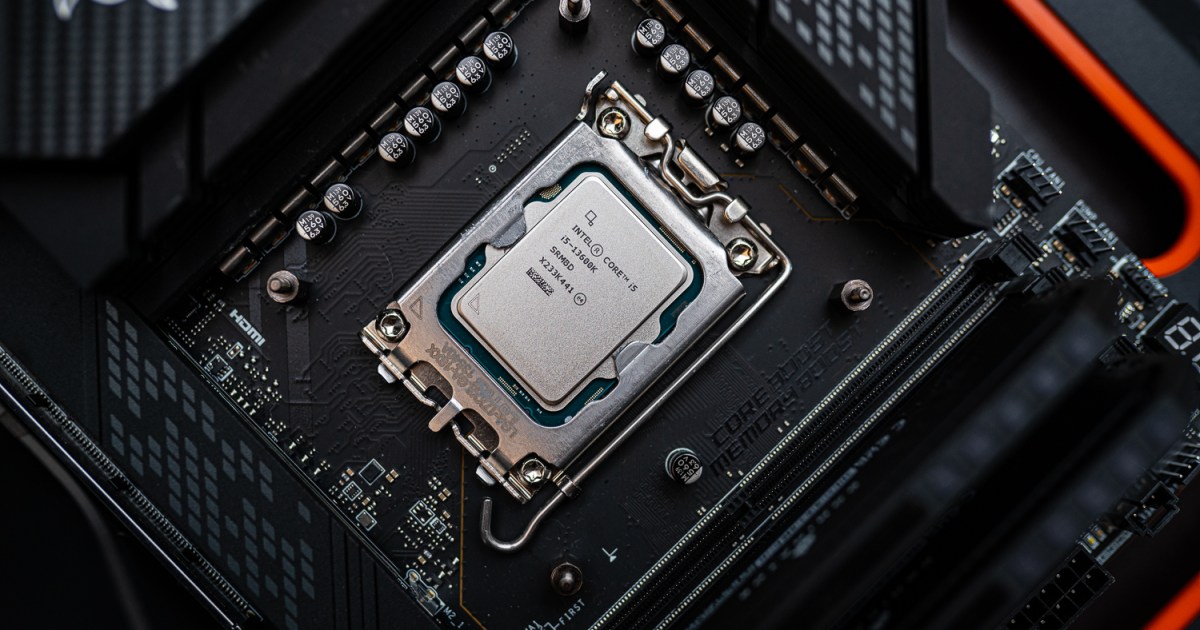Intel Arrow Lake is Team Blue’s next-generation of processors. The successors to the Meteor Lake/Raptor Lake refresh 14th-generation, Arrow Lake is expected to debut towards the end of 2024, but it’s not quite as straightforward as previous generations. It may launch alongside another low-power version to maximize Intel’s fabrication capacity and ditch one of Intel CPUs’ most long-standing features: Hyperthreading.
There’s still some time to launch, so we don’t know all the details yet, but we are learning more all the time. Here’s everything you need to know about Intel Arrow Lake.

Arrow Lake specs
We don’t have any raw specifications for Arrow Lake processors as of yet, but there have been some tantalizing rumors that we can consider.
As with recent generations of Intel processors, Arrow Lake is slated to use a tile-based design, with performance and efficiency cores running alongside an onboard GPU and other accelerators for AI and video transcoding. Laptop CPUs will also likely utilize Intel’s low-power Efficiency cores to further improve battery life in low-power modes.
Performance core numbers are not expected to rise this generation, with the top chips still sporting eight P cores. Efficiency core counts will likely stay the same at the original Arrow Lake launch, with up to 16 cores at the top end. However, there is talk of a mid-generation refresh, which could give some Arrow Lake chips as many as 32 E cores, though those won’t arrive until well into 2025.
The new chips will have new core architectures, though. The Arrow Lake P cores will reportedly be based on the Lion Cove architecture, while the efficiency cores will use the Skymont architecture.
Other rumors suggest that Arrow Lake will be built on a new LGA 1851 socket design, with more pins than 12th- and 13th-generation designs on the LGA 1700 socket. That means you’ll need a new motherboard for Arrow Lake processors and won’t be able to upgrade from 12th, 13th, or 14th-generation PCs directly. However, it will be the same physical size as LGA 1700, so coolers should be compatible.
That new socket brings a new generation of motherboard chipsets, too, as well as mandated DDR5 — no more DDR4 on Intel boards with this generation. Memory speed support will rise again, and there are rumors of support for Thunderbolt 5, though those haven’t been confirmed. The flagship PCIe technology will remain PCIe 5, too.
One big change that could be coming with Arrow Lake is that Intel will ditch its long-time simultaneous multithreading technology: Hyperthreading. It did this with sub-top-tier models in the 9th generation, but this will reportedly be a complete top-to-bottom removal of the feature. The idea is to allow the performance cores to stretch their legs on demanding tasks, while the multithreading capabilities hyperthreading typically enables would be handled by the new E and LP-E cores.
Arrow Lake will reportedly be built using the Intel 20A process node, which would be called 2nm by conventional naming standards.
Bartlett Lake
There have also been rumors that Intel will debut a new Bartlett Lake design for low-end processors alongside Arrow Lake in 2024, utilizing the older Intel 4 3nm design. These may be designed to offer competition for AMD’s aging, but certainly not unpopular, Ryzen 5000 generation, which continues to see support with new designs like the 5700X3D, and new 5000 GT series.
Barlett Lake will reportedly based on updated Raptor Lake silicon designs, so it should be compatible with existing LGA 1700 platforms. It should have DDR4 memory, too, potentially making it a cheaper upgrade path for Intel fans.
While it might seem odd for Intel to utilize an older process node and split its next-gen lineup in two, this is to take the pressure off the fabrication of Intel’s 20A silicon, which will be cutting edge at the time of release and in limited supply. Using an older design for more affordable chips should improve availability and pricing come launch time.

Arrow Lake availability
Just when will Arrow Lake be released to the public? Intel debuted its 14th generation Meteor Lake designs to a lukewarm reception, so to stay within its plan for five nodes in four years, Intel is expected to launch Arrow Lake in the last few months of 2024 — likely, with Barlett-Lake alongside it, or shortly after in early 2025.
Lunar Lake is reportedly already being sampled by laptop manufacturers, too, so we may see mobile Lunar Lake processors appear not long after Arrow Lake’s debut on desktop.
Arrow Lake performance
We don’t know how fast Arrow Lake will be just yet, but if the rumors of core count improvements are anything to go by, they should be very fast indeed. On top of that added multi-threaded power, we have a new process and an entire architectural revamp — after Meteor Lake was pared down to a mere Raptor Lake refresh.
Claims of IPC gains are said to be around 5% for single-threaded and 15% for multi-threaded. A new process node and other enhancements could lead to some notable performance improvements with Arrow Lake. However, with a new node, new chipset, and new architecture, clock speeds may not be as high as they were for the current generation designs.
That said, Intel dropping hyperthreading from the chips would suggest that they are indeed incredibly fast, as it has typically required hyperthreading to remain competitive with AMD’s best CPUs.
Arrow Lake will reportedly add support for faster memory up to DDR5-6400, which should help further bolster performance.
Arrow Lake onboard graphics are said to use Xe-LPG Plus, an upgraded version of the architecture we’ve seen in its latest Arc GPUs and Meteor Lake onboard GPUs, so they should be some of the fastest integrated graphics yet.
Impressive, but wait and see
Arrow Lake is shaping up to be an exciting Intel architecture and generation of processors, but it’s still firmly speculative for now. If you want a new Intel processor before Arrow Lake launches though, check out our guide to the best Intel CPUs to find out how to maximize your budget.
Editors’ Recommendations

